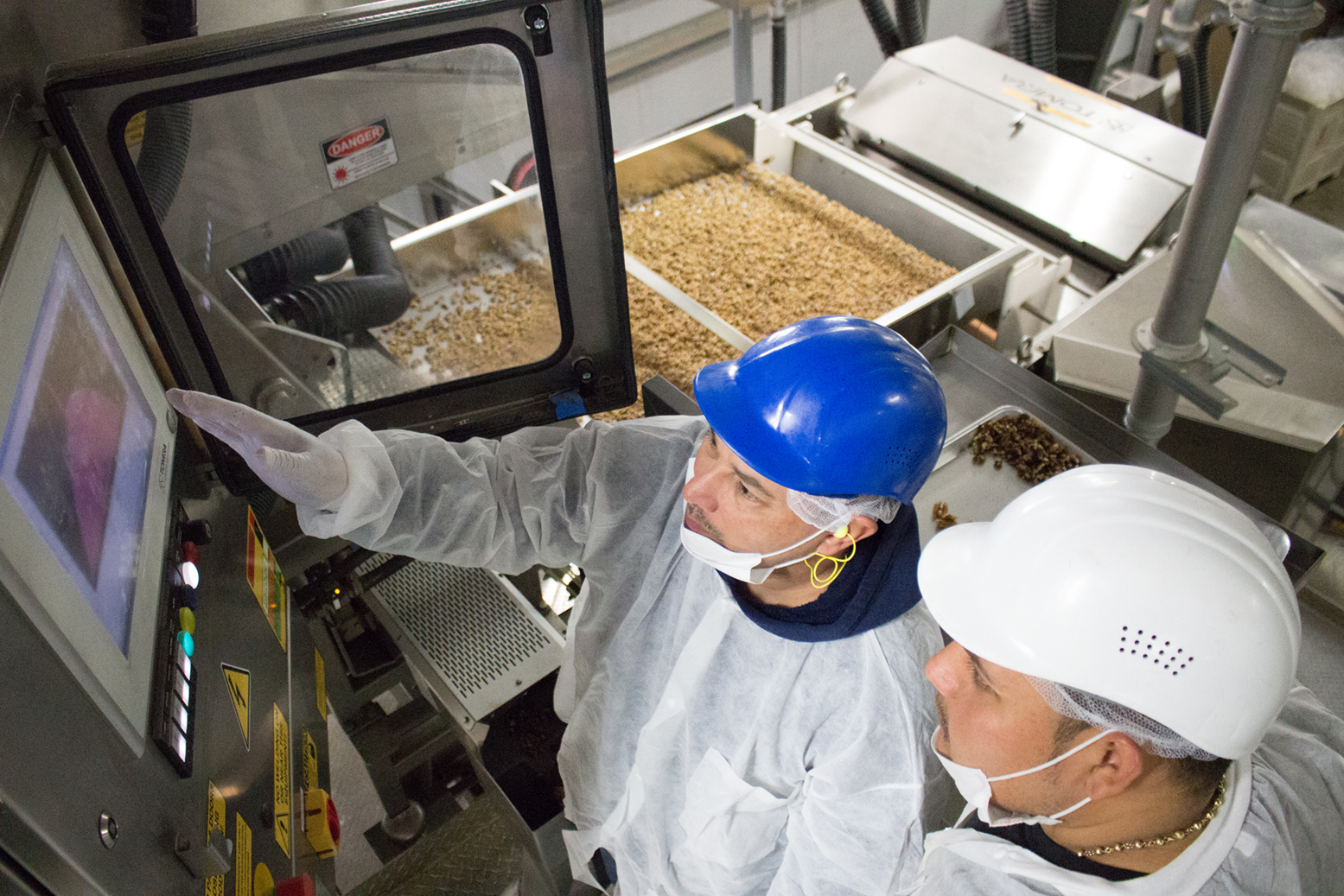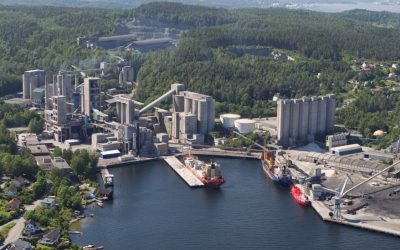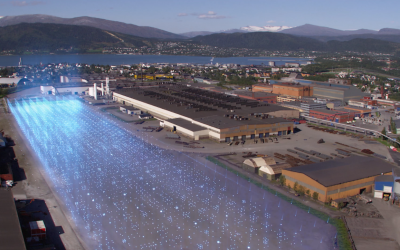TOMRA is a Norwegian owned company which designs, manufactures and sells solutions within the field of sustainability and recycling. The company operates in 80 markets worldwide. Growth ambitions are still strong, and a new HR system is being implemented globally in the company to support these ambitions. The new system will be a significant contribution to TOMRA's focus on Talent Management, increasing efficiency of IT operations related to HR tasks.
Metier functions as a partner in the project, providing expertise in digitalization, change and project management, as well as agile methods.
We spoke with TOMRA to hear about the biggest benefits and success factors of the project, and project manager Per Inge Krossen talked about what he has learned on the way to implementation in approximately 40 countries.
TOMRA - from Asker, now global
TOMRA is now a global company but has kept their Norwegian roots. Since the brothers Petter and Tore Planke provided a local merchant with a solution to accumulating bottles in 1972, TOMRA has delivered important innovations in recycling and resource use.
Today TOMRA consists of four divisions: Collection (which we in Norway recognize by their recycling machines), Food (fresh and processed), Recycling & Mining, and Circular Economy. In their own way, these contribute to a more sustainable approach to waste management and ensure better resource use in 80 markets worldwide.
The system being implemented in TOMRA's HR department, People and Organization (P&O), is developed by Sage People. This, in turn, is built on the Salesforce Platform. The system will ensure, on a global level, that the company has secure storage of personal data, reporting and management of absence, talent management, salary planning, and employee evaluation. The most important thing however, is talent development in a rapidly growing company.
You can read more about TOMRA here.
A glocal system
Before the project was initiated, TOMRA's HR system did not allow for both global interaction and local needs. Each country and business area has had its own solutions - ranging from pen and paper or Excel lists in the smaller offices, to modern systems in the larger ones.
One challenging factor in establishing integrated HR and talent development solutions in global companies like TOMRA is that they must be flexible enough to handle local market requirements, regulations, and other needs at the same time. Therefore, a project was initiated to establish a glocal HR system for TOMRA's P&O departments. A glocal system means a global technology platform with local optimization.
A smoother talent development process across borders
TOMRA has clearly stated growth ambition. To support such an ambition, one must have the necessary talents in the organization. Talent Management is therefore an important focus area for TOMRA, and one of the reasons they started the project to implement a new system for P&O globally.
Having only one system will improve productivity for the P&O function, but also for the organization. The system will allow TOMRA to reduce duplication, while they improve employee overview, which benefits from standardization and automation. Data sharing also becomes easier, while data security and reliability increase due to quality control from one source. For example, the system makes it easier to find and develop talents within the company, across national borders.
The system will also make it easier for TOMRA to comply with necessary local laws and regulations, one example being GDPR. Part of the project involves ensuring that local and legal differences are considered.
One TOMRA, a common culture
The final key objective of the project is to support TOMRA's digital strategy and contribute to creating OneTOMRA - a shared company culture across divisions and countries. When the project started, HR department structure in different countries within the Collection division was different. This in turn made it difficult to create a cohesive culture.
To solve this, the group appointed a global leader for People and Organization. This role has a unifying function and has a seat at the group management level. The leader has responsibility for building up the function and focus on talent management.
Global differences provides exciting challenges
In the approximately 40 of TOMRA's markets where the system is introduced there are differences in legal systems, local organizational characteristics, and HR maturity. TOMRA cites that Metier's project management, as well as training and education in the system are key success factors in the project.
To ensure that overall needs of the company as well as local conditions are considered, workshops became a key factor.
Per Inge Krossen traveled around for TOMRA before the pandemic and held workshops at different offices.
-We learned that these workshops should be physical again after the pandemic. Doing it “live” is more impactful and takes less time. Most importantly, it's easier to provide personal follow-up and ensure a shared understanding. This is important because a misunderstanding can easily develop into some form of error in the product, says Per Inge.
A workshop includes a thorough review of each country's laws and regulations. In working with the different countries, the project team balances different time zones, cultural differences, and digital maturity levels. While some countries want to pull out reports on sick leave, others are not as technical. Some offices also have a greater need for generating information and calculations for budgeting, while others for various reasons are more focused on tasks related to administration and operations.
The road towards a common system
When it was decided that the new HR system would be a unifying system on a global level, while allowing local optimization, the project had to identify which data belonged to the global "core" and which had to be adapted to regional conditions, laws, and regulations.
- In Germany, for example, we have created an absence module for each Bundesland, which corresponds to Norwegian counties. Among other things, each Bundesland has different vacation weeks. If this was not correct, the full effect of the integration with resource planning would not be achieved. This was originally developed for Collection, but now it will also benefit Food and Recycling and Mining, explains Per Inge.
Overall, the project has set up around 80 HR departments in the system to cover all combinations of divisions and countries.
- There are clear synergies within the project with this approach. The interaction of the project group with so many functions - such as IT, all HR departments, finance, and operations - makes it easy to identify where digital collaboration across divisions can be improved. The project has broken down some functional silos and ensured that the divisions communicate better. This is one of the biggest success factors of the project as a whole, says Per Inge.
5 benefits of a glocal HR system
Which benefits does TOMRA gain from the glocal HR system, specifically? Here are some of the main points that TOMRA wants to highlight:
- Data security and reliability are ensured by introducing and implementing controls from a single source.
- Automatic account activation, updating, and deactivation result in a significant reduction in transaction work for the respective IT departments.
- Analytical data can now be used by HR departments to provide insight into senior management and operations.
- The system supports the company's growth ambition through easier talent management across the company's divisions and markets.
- The system supports the ambition of OneTOMRA - a common culture across divisions and all countries in the company. The divisions communicate better and the opportunities for collaboration across markets have increased.


